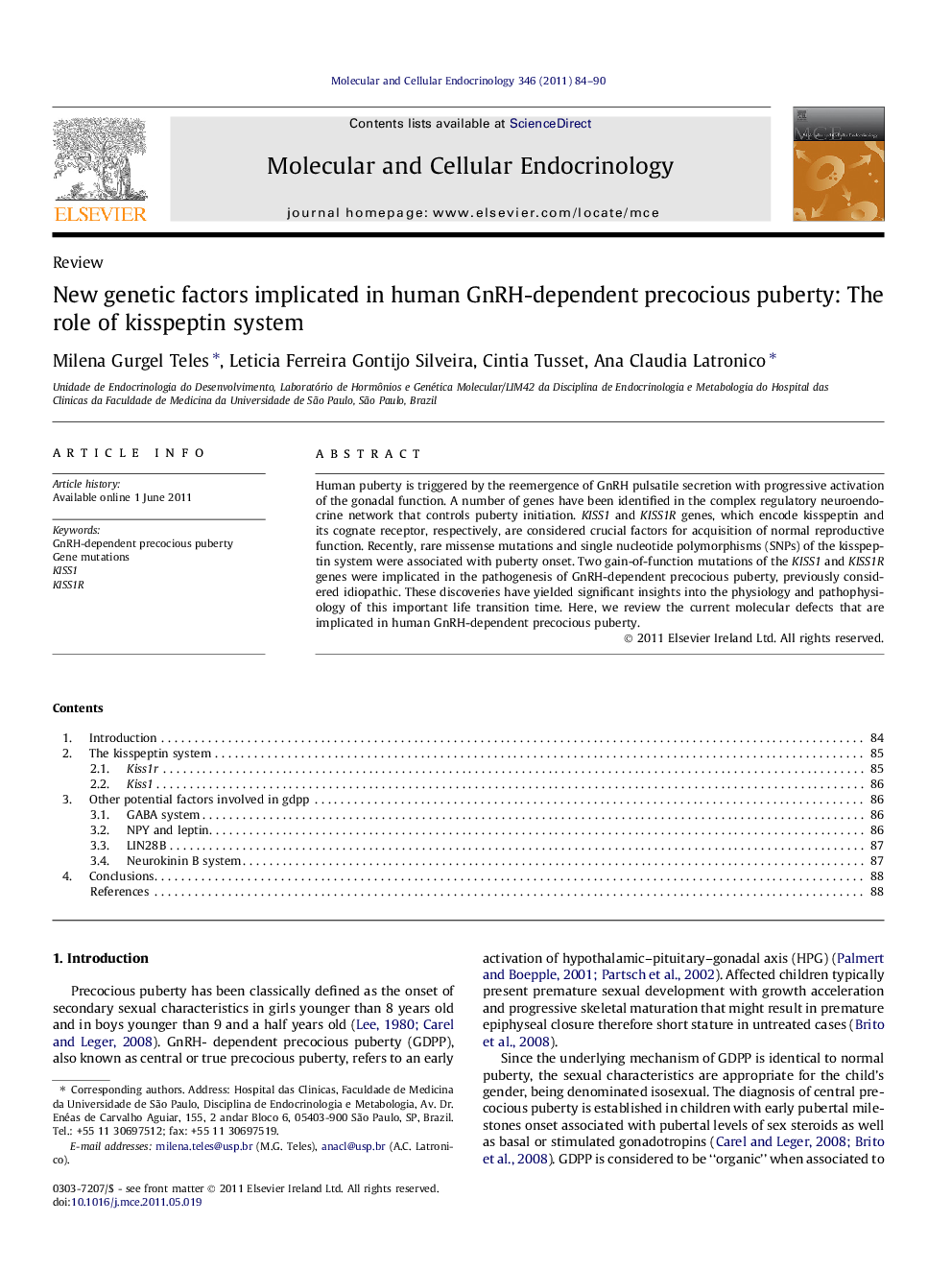| Article ID | Journal | Published Year | Pages | File Type |
|---|---|---|---|---|
| 2196482 | Molecular and Cellular Endocrinology | 2011 | 7 Pages |
Human puberty is triggered by the reemergence of GnRH pulsatile secretion with progressive activation of the gonadal function. A number of genes have been identified in the complex regulatory neuroendocrine network that controls puberty initiation. KISS1 and KISS1R genes, which encode kisspeptin and its cognate receptor, respectively, are considered crucial factors for acquisition of normal reproductive function. Recently, rare missense mutations and single nucleotide polymorphisms (SNPs) of the kisspeptin system were associated with puberty onset. Two gain-of-function mutations of the KISS1 and KISS1R genes were implicated in the pathogenesis of GnRH-dependent precocious puberty, previously considered idiopathic. These discoveries have yielded significant insights into the physiology and pathophysiology of this important life transition time. Here, we review the current molecular defects that are implicated in human GnRH-dependent precocious puberty.
